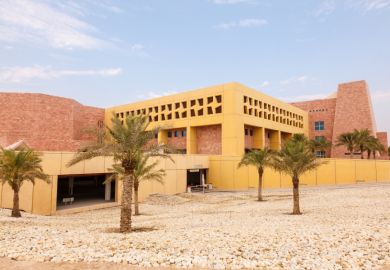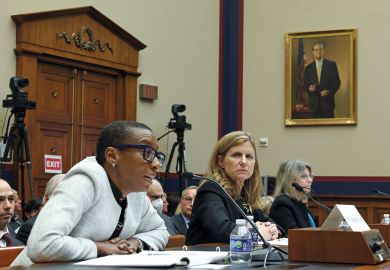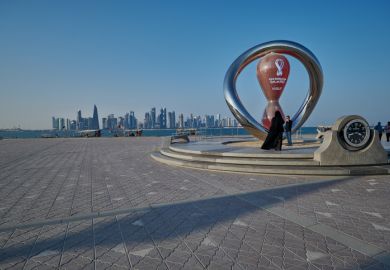The closure of Texas A&M University’s Qatar campus, which has prompted a bitter fallout, reflects the growing political influence on US institutions, according to academics.
The move came after a controversial report by the Institute for the Study of Global Antisemitism and Policy (ISGAP), which has been heavily critical of the Qatari state, particularly its role mediating for Hamas in the Gaza conflict.
The organisation claimed that there were national security concerns over nuclear research conducted in Education City, where the campus is located, and debate has now centred on the accuracy of its claims and how much of a role they played in the decision by Texas A&M’s Board of Regents.
While Texas A&M cited “heightened instability” in the region, Steven Wright, associate dean for academic affairs at Hamad bin Khalifa University (HBKU), said this was misleading.
Instead, he saw the decision as reflecting pro-Israeli politics in the US.
“Their publications have a very clear agenda – which is to impact all of the US universities that are based in Qatar,” he said. “It preceded it, but it has accelerated because of the conflict in Gaza.”
Neetu Arnold, a research fellow at the National Association of Scholars, a conservative advocacy group, argued that closing the campus was the right decision, questioning why a US university would enter into an agreement with an “adversarial authoritarian government” in the first place.
But she said Texas A&M had terminated that relationship for the wrong reasons – accusing ISGAP of confusing nuclear energy with nuclear weapons, and of finding little evidence of either.
Texas A&M confirmed to Times Higher Education that research pertaining to nuclear energy had never been conducted at the campus.
But a spokesman for the Texas A&M University System said the claims had no bearing on the decision by the Board of Regents, explaining that it was made after a close analysis of the university’s mission and the evolving political situation in the Middle East.
Dr Wright was not the only scholar to suspect political influence, however. “I think it’s part of a broader political trend that speaks to what is happening in the US and Texas in particular,” agreed Mehran Kamrava, professor of government at Georgetown University in Qatar.
He said universities across the US have been coming under huge pressure from boards of trustees who have different priorities from academics – a trend that has been exacerbated by the Gaza war.
Dr Wright said Texas A&M was a public university within a Republican state and so was probably more vulnerable than the other US universities operating in Qatar.
“The other universities are private, but we need to be clear that all of these universities will be under pressure from the same institution and other pro-Israeli pressure groups to undermine Qatar and its relationship with the US,” he said.
Kristian Coates Ulrichsen, a fellow for the Middle East at Rice University’s Baker Institute, said the board might have anticipated that the political headwinds in Texas were only likely to intensify, and was winding down the campus in a manner that, by “emphasising a Texas-first approach, may be consistent with the prevailing political wind at home”.
“There is a risk that, while no campus wanted to be the first to leave, others might choose to follow, but I consider this unlikely,” he added.
Charles Asher Small, director of ISGAP, denied that his organisation was running disinformation or misinformation campaigns.
“Rather, we are spearheading an information campaign based in facts to illuminate the perils associated with accepting funds tainted by an anti-Western, anti-democratic, pro-jihad regime,” he said.
Register to continue
Why register?
- Registration is free and only takes a moment
- Once registered, you can read 3 articles a month
- Sign up for our newsletter
Subscribe
Or subscribe for unlimited access to:
- Unlimited access to news, views, insights & reviews
- Digital editions
- Digital access to THE’s university and college rankings analysis
Already registered or a current subscriber?








